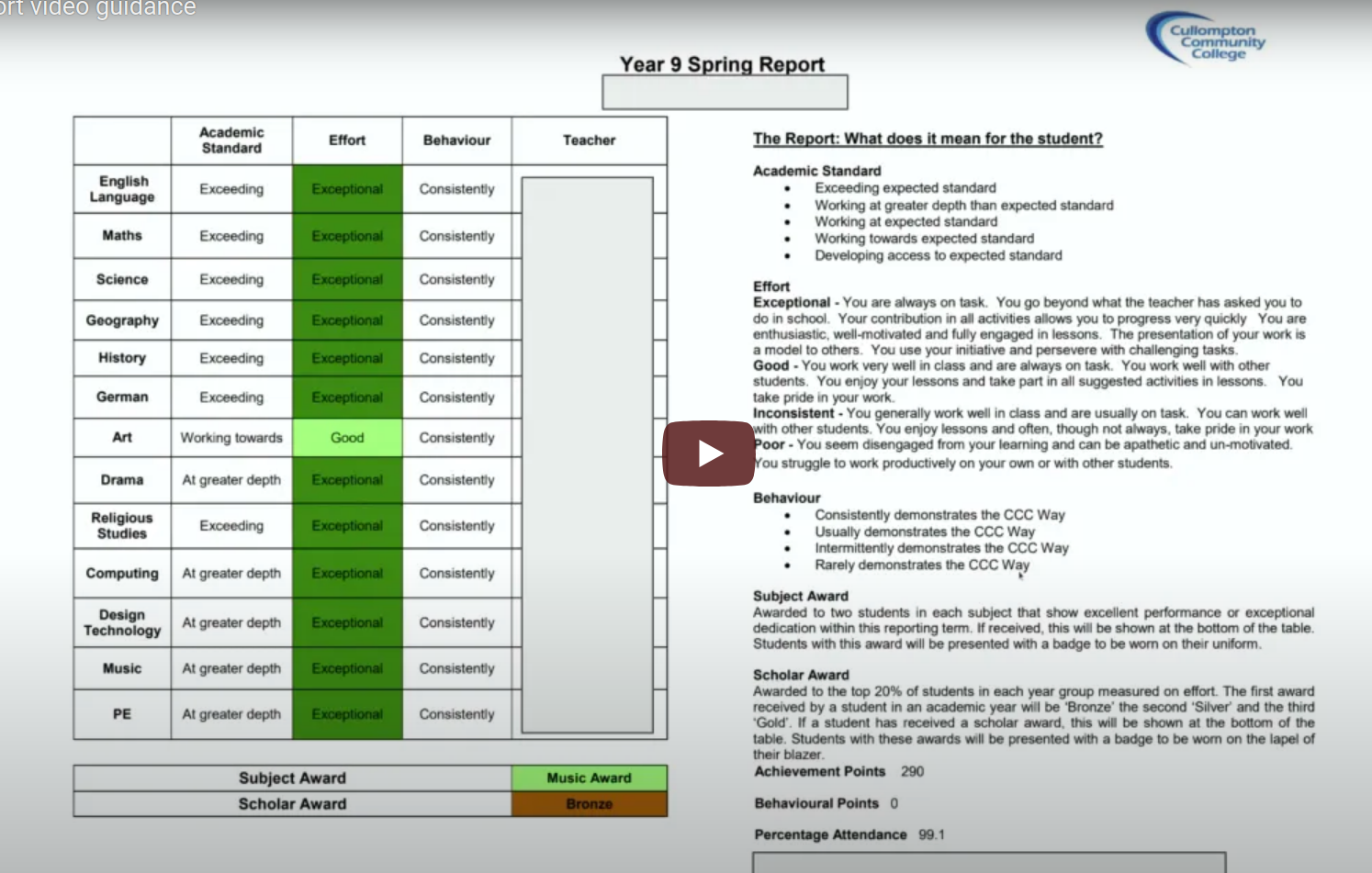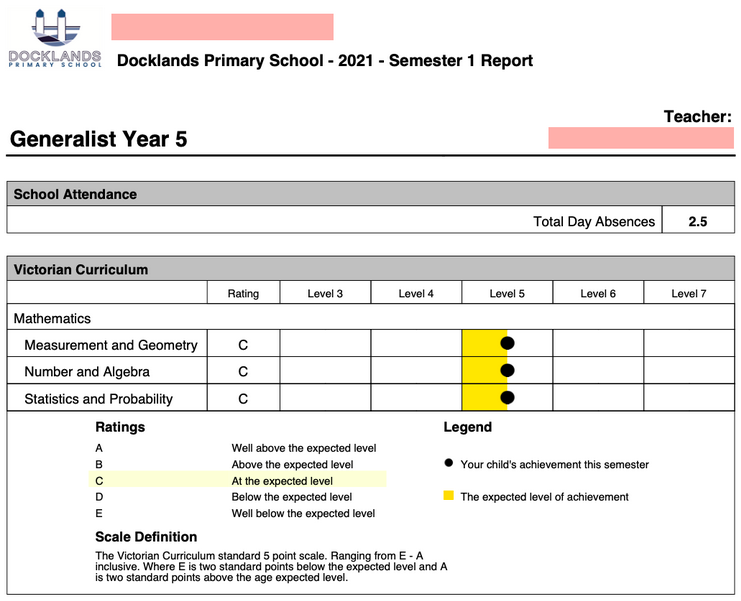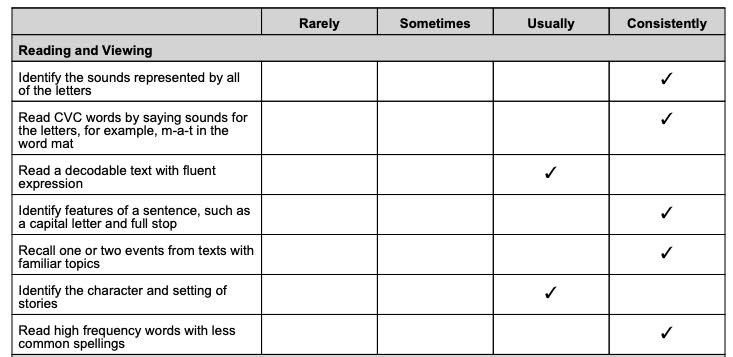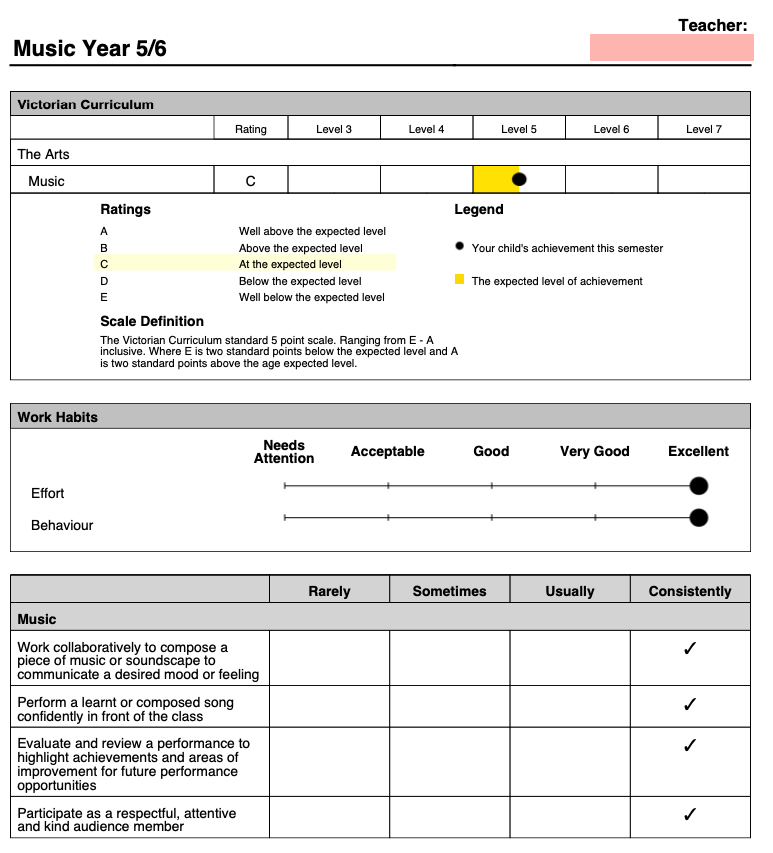Anything that takes up a significant amount of teacher time, and delivers low or uncertain benefits to student learning, is well worth considering in detail. This knowledge, as well as many conversations with frustrated teachers over the years, lead me to a recent exploration of school reports.
I sent out a questionnaire via my mailing list that asked teachers and leaders to share the main challenges that they face with reports, and what they’ve done to try to overcome them. I received 61 responses from educators right across the world, and it was fascinating to read the different approaches that people are taking to the challenge.
In the following I outline three key things: The goal of school reports, the challenge with them at present, and some potential solutions shared by some of the survey respondents whom I spoke with in a little more detail.
What’s the point of school reports?
I see four main things that schools may be trying to achieve through reports:
- Provide feedback to students on their learning
- Communicate student progress to parents/guardians
- Build parent/guardian trust in the school
- Give leadership a clearer picture of how teachers are leading their students’ learning
These are all noble goals. But the question we must ask is, ‘Are reports, in their current form, the best way to do this?’
How do these mesh with your view of the goals of reports? You may like to keep these, or your own goals of reports in mind as you read on.
What are reports costing us?
If you’re a teacher reading this, you’ll have a pretty good sense of the impact that reports have on you. I have faced similar challenges with reports to those faced by many teachers, but it wasn’t until I actually read through the survey responses, and spoke to school leaders about their report processes, that I gained a clear understanding of just how big this challenge is.
For example, as a maths teacher, I hadn’t thought of the challenges faced by my colleagues who teach subjects with fewer lessons per class, per week. One respondent to the reports survey shared that they were a geography teacher, teaching 10 different classes. This could mean up to 250 comments to write whenever report time rolls around! Similar challenges are faced by foreign language teachers.
But the thing that really brought home the size of the challenge was when I called up two primary school leaders who responded to my survey. Each had taken the time to actually quantify the report writing challenge. Here’s an example of the cost shared by one of these leaders:
Each teacher writes a comment for each student in each learning area. That’s approximately 40-80 words for each of creative arts, personal development, science and tech, english, maths, and a pastoral comment. Many teachers spend 20 minutes per comment (especially if they’re being thoughtful and/or are not particularly fast at typing), for 25 students leads to about 50 hours per primary teacher.
Both primary leaders whom I spoke to who were doing comments in this way had independently come up with this ‘50 hours’ estimate. Both also reported that in the month or so before reports go out, there is very little else that the school can do, and PD totally goes out the window because teachers are spending every spare minute putting together reports. The wellbeing cost of trying to find an extra 50 hours of work over a month or so is absolutely huge.
But this is just the individual teachers. Reporting in this way is costing leaders a huge amount of time also. I spoke to one leader just after a long weekend, and she had used her whole long weekend proofreading reports, for both grammatical errors as well as appropriateness to be read by parents. What else could she have been doing if reports were done a different way?
On top of this, there were also frequent accounts of teachers being given a report writing day each term, as well as using sick days on top of that to get their reports completed.
We can estimate the cost of reports in monetary terms too. Consider a primary school with 30 teaching staff. If each teacher is given a day of release to write reports (paying for a relief teacher in each case), then a third of teachers takes a sick day on top of that, the total cost to the school of teacher cover alone amounts to around $14,000 per report. Could $14,000 be spent another way to achieve the ends that these reports are pursuing?
Regardless of the direction from which we consider this challenge, teacher wellbeing, lost learning time, lost PD time, or financial, the cost of reports done in the traditional manner can be enormous.
A better way to do school reports?
When I interviewed Tom Sherrington on the ERRR podcast he shared the somewhat comical story of one of his English colleagues who gave every student the same comment. It went something like this (from my summary of the podcast):
‘Taking account of your progress so far, your work can be improved by using the criteria provided to check your work prior to submission. You will also benefit from extending your reading, especially with [list prescribed and supplementary texts]. Finally, be sure to review your notes, class handouts, and key quotes prior to your assessments in the coming term.
Now, this is definitely a time-efficient way of writing reports, but it probably isn’t what you were looking for when you came to this post!
Luckily, three of the school leaders whom I spoke to had come up with a wonderful approach to reports that save time as well as achieving (or opening up more time to achieve in better ways) the four stated goals above. Here’s the insight…
Stop writing subject comments!
That’s pretty much it!
But can it be done? Won’t parents complain?
Of the three schools that I spoke to, only one said that any parents had even asked questions about the change and, when they had the rationale of the decision communicated to them (as detailed below), they were excited about the idea.
To show you just how this can really be done, I’d like to now share with you what the reports of these three schools look like.
Cullompton Community College, UK
I spoke with Chris Haynes from Cullompton Community College and he was generous enough to share a screenshot of a de-identified student report, here’s what theirs look like:
As you can see, it’s the whole school report on a one-pager, with simply an academic, effort, and behaviour rating made for each subject, and then any awards received communicated bottom left. This was definitely the most concise report approach that I encountered.
What I particularly loved about this approach was that Chris explicitly talked about how the school was using the time freed up through this concise approach to achieve the goals mentioned above. They had increased the number of parent-teacher evenings from one to two per year. Chris suggested that more frequent conversations were better for both parents and teachers, and more motivating for students, than a traditional written report approach. A point with which I tend to agree. The school had also transitioned to using https://www.parentseveningsystem.co.uk/ (no affiliation) to manage the online meetings, and were planning on setting up laptops in the schools cafeteria for parents who didn’t have a stable internet connection at home, or found it easier to travel to the school than home, for the interviews.
St Thomas the Apostle Kambah, ACT
One key thing to do in schools whenever there is a change of policy is to clearly communicate to parents and community the ‘why’ and the ‘what’ of the change. This is something that principal Ursula Jamieson and her team at St Thomas the Apostle Kambah did particularly well. Ursula was generous enough to share with us the message that went home to all parents at St Thomas the Apostle Kambah (and other related schools in the system) to set expectations around reports, and a new, leaner format.
Reporting – Semester 1 2021
Our teaching team has begun the process of creating each child’s Semester 1 2021 report.
In Semester 1:
For Kindergarten students:
- Achievement in each subject will be reported using a four-point scale (Well Above Expectations, Above Expectations, Meeting Expectations and Working Towards Expectations).
For Year 1 to Year 6 students:
- Academic grades for each subject using a five-point scale from A-E will be reported using the Australian Curriculum Achievement Standards.
For all students:
- Strand Achievement will be reported in English, Mathematics, Humanities and Social Sciences, Health and Physical Education, and The Arts using a five-point scale (Excellent, High, Sound, Basic, Elementary).
- Engagement with Learning statements, which are taken directly from the Australian Curriculum, will provide specific information about your child’s Critical and Creative Thinking, and Personal and Social Responsibility, using a three-point scale (Beginning, Developing, Consistently).
- Individual student comments will not be used in the Semester 1 Reports.
Dialogue is an important feature of reporting. The Semester Report in this format encourages parent engagement and conversation about student learning. We want the report to be the entry point for parent-teacher interviews / three-way conversations where we can engage in genuine conversation about your child’s strengths, challenges, effort and areas for growth.
You are encouraged to [put in specific information about the next opportunity to meet with teacher/s].
The new approach to Academic Reporting is a developing process. Further work will be undertaken in the coming months to determine how progress and achievement is best reported based on what we know to be important information about a student’s learning and progress.
Docklands Primary School, Vic
Docklands Primary School is a brand new school in Melbourne, Victoria. I really enjoyed speaking with Foundational Principal, Adam Bright, about how they had used the ‘clean slate’ of a new school to rethink school reports.
Docklands had a deep think about the capabilities at each year level, and within each subject, that were most key for them to report on, and developed a way to report upon each of these. This means detailed feedback to parents in regards to each subject, but without the subject comments. Here’s an example:
Some data on literacy
And report in a specialist subject
Docklands PS hasn’t done away with comments all together, and a single comment is written for each student in the following style.
 This comprehensive reporting system strikes, I feel, a fantastic balance between teacher efficiency, and warmth, care, and personability.
This comprehensive reporting system strikes, I feel, a fantastic balance between teacher efficiency, and warmth, care, and personability.
A note on Docklands’ approach: I spoke to Principal Adam Bright just before posting this blog and he shared that they are considering a refinement of their approach. Adam mentioned that the ‘rarely’, ‘sometimes’, ‘usually’, ‘consistently’ tick boxes pictured above work well for binary skills like, ‘Can read time to the nearest quarter hour’ but they don’t apply as well to criteria such as, ‘Can write a narrative’ where it’s more about depth and quality (this relates to the distinction between difficulty vs. quality models of assessment, as discussed in my podcast with Daisy Christodoulou). As such, moving forwards, one thing they’re working on refining is how to effectively and efficiently communicate to parents and guardians student achievement on both quality related items (e.g., narratives) and difficulty related items (e.g., telling time to nearest quarter hour), within their reports. One thing that good schools do is consistently ask, ‘How can we do this better?’, and it’s great to see Docklands considering how they can improve an already good system.
…
What Cullompton Community College, St Thomas the Apostle Kambah, and Docklands Primary School show is that we can achieve all of the goals of traditional school reports in ways that are much more time efficient, and even more effective.
Reflecting on the four goals, and whether they’ve been achieved through a more concise report format:
- Provide feedback to students on their learning
- Definitely occurred
- Communicate student progress to parents/guardians
- In all cases, and I would argue much more clearly than with wordy comments using pedagogical vocabulary that may be alienating to parents.
- Build parent/guardian trust in the school
- Yes, especially through the increased parent teacher meetings (Cullompton Community College) or a more personalised single written comment (Docklands PS)
- Give leadership a clearer picture of how teachers are leading their students’ learning
- To a sufficient degree, reports aren’t an ideal way to do this anyway!
Hopefully you found this blog stimulating, and maybe it’s even helped you to consider your own school reports system more deeply. My hope is that this blog will help more schools to free up teacher time for practices that are shown to be effective in supporting student learning, and will also increase teacher wellbeing at the same time.
If you do decide to change your school reports approach, and you think you’ve found a good way to do it, I’d love to hear from you!
If you’d like to be involved in future mini research projects like this, simply subscribe to my mailing list and you’ll receive surveys, in addition to new blogs, podcasts, and edu insights whenever they go out.
A BIG thank you to all the people who filled out the survey, and especially those who were generous enough to have a chat with me over the phone!



